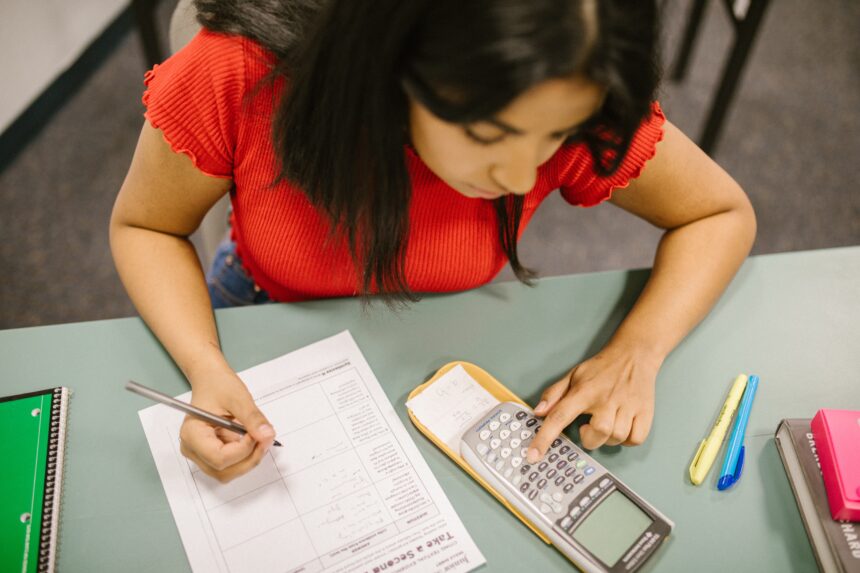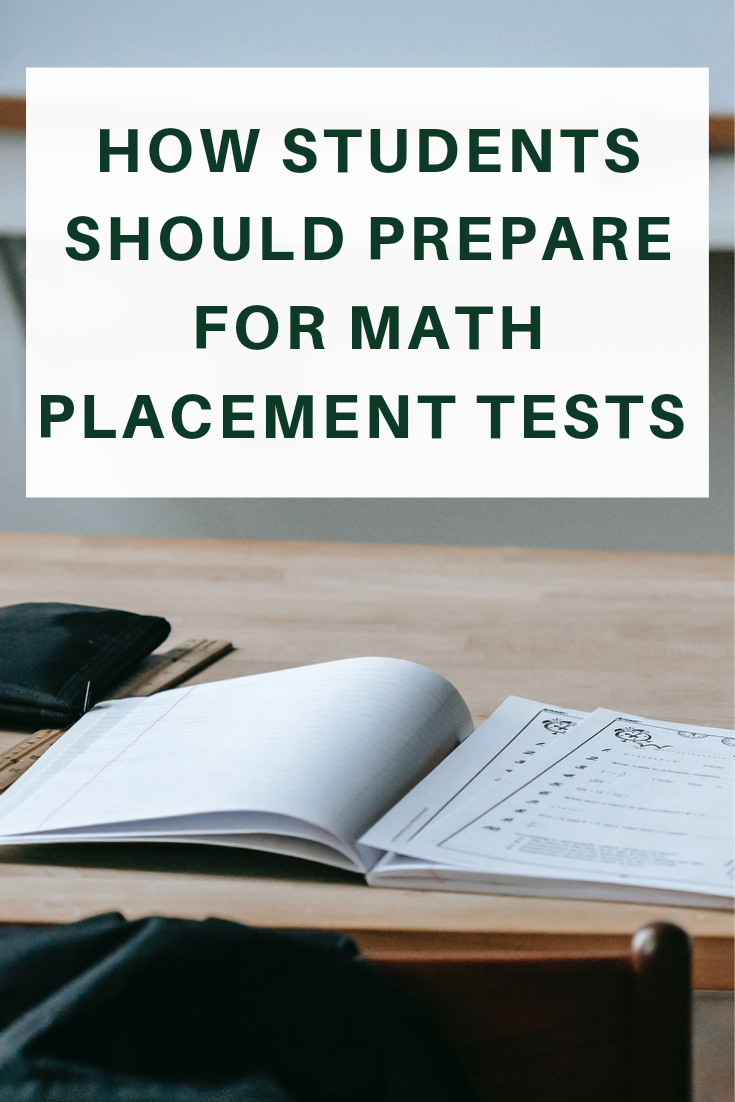Once a student has completed their college applications, beginning to narrow down their choices for courses and preparing for math placement tests are important next steps in the process. From part-time education to full four-year degree, choosing the right course is something that will shape and determine their future. Being fully prepared for that next step is the best way to make sure they’re on the right track.
Before they begin their courses, they will be put to the test. Completing a math placement test is needed for enrolling in specific courses and something that every student should be prepared for. This isn’t something that should worry them, however. We’ve put together a simple guide to help students understand what the tests are and how to prepare for them.
What are Math Placement Tests?
Designed to test a student’s skills and understanding of math, the math placement test allows schools to understand which classes and courses are best for the students. The tests are a normal part of the enrollment process and are completed at home after the student has been admitted to a school.
An important aspect to understand is that there is no passing or failing these tests. The purpose of the placement test is to measure a student’s skill and understanding of the subjects. The test is more a measure of personal ability rather than knowledge of math, revealing how they tackle problems and concepts within the subject.
Once completed, the school can use the result to determine and tailor which classes the student should be placed in. If scoring well, for example, they will be enrolled in more advanced classes, skipping some of the lower level courses that aren’t needed.
What to Expect on A Math Placement Test
Although the math placement test is something all students must take, there is no standardized format. Each school creates their own tests, based on their individual set of standards, that help them understand a student’s skills.
While not standardized, there will be obvious similarities between all math placement tests. All tests will cover a wide range of topics such as algebra, trigonometry, calculus, and more. These questions and problems are designed to give an overview of a student’s understanding, and therefore are more broad and don’t require a deep knowledge of the topics.
Questions will be followed by word problems that cover more conceptual aspects of mathematics. Using a range of topics such as algebraic fractions, roots and exponents and students will provide written analysis to solve longer questions and mathematical concepts.
Typically, tests are not timed and consist of mostly multiple choice questions. An important thing to remember is the test is used to measure a student’s ability and comprehension, not their speed, so rushing through the test isn’t advised.
Don’t Fear Math Placement Tests! They’re Here to Help
The tests are designed to allow schools and students alike to save time and money. If a class is mandatory, for example, but a student does well in that area on the test, they won’t need to take that class and can advance to further, higher level classes. If their degree is less math-oriented, such as history or psychology, students might be able to skip over some math course requirements with a high placement test score. This can lighten their course load, allowing them to spend more time on courses related to their major in the first year of school.
Of course, the opposite is also true. If a student scores poorly on the test this means they may be placed in lower-level, required classes, which can take away from other, more interesting classes.
How to Prepare for Math Placement Tests
While it may seem obvious, brushing up on basic math skills and concepts before taking the test can help give a student an advantage. As mentioned above, the tests cover a wide range of mathematical subjects so a good understanding of each is important. Ensuring a student has good study habits can help make everything much easier in the long run.
That being said, over preparing and worrying can have negative and impactful results. It is important to remember that this test isn’t pass-or-fail, but simply an understanding of a student’s skills. Over-preparing and getting a higher score can lead to students being placed in advanced classes that they are not ready for, and can result in bad grades throughout the year. This can also put unwanted stress and undue pressure on students.
The reverse is also true. If a student does not prepare well for the test, they may score poorly. Low scores can result in the school placing students in unnecessary, low-level courses which they could have otherwise skipped, costing the students more in the long run.

Need Help? There are Study Resources Available
Hiring a tutor can make all the difference, especially one that understands math placement tests well. Many students struggle with studying, and having a personalised tutor can help tailor their learning. Whether a student struggles with geometry, chemistry equations, or balancing a spreadsheet, a tutor will be able to recognize these shortcomings and fill in the gaps.
Ensuring a student gets the correct score on the math placement test can place them in the right classes, save them time and money, and make a huge impact on their educational experience.
*This is a collaborative post

